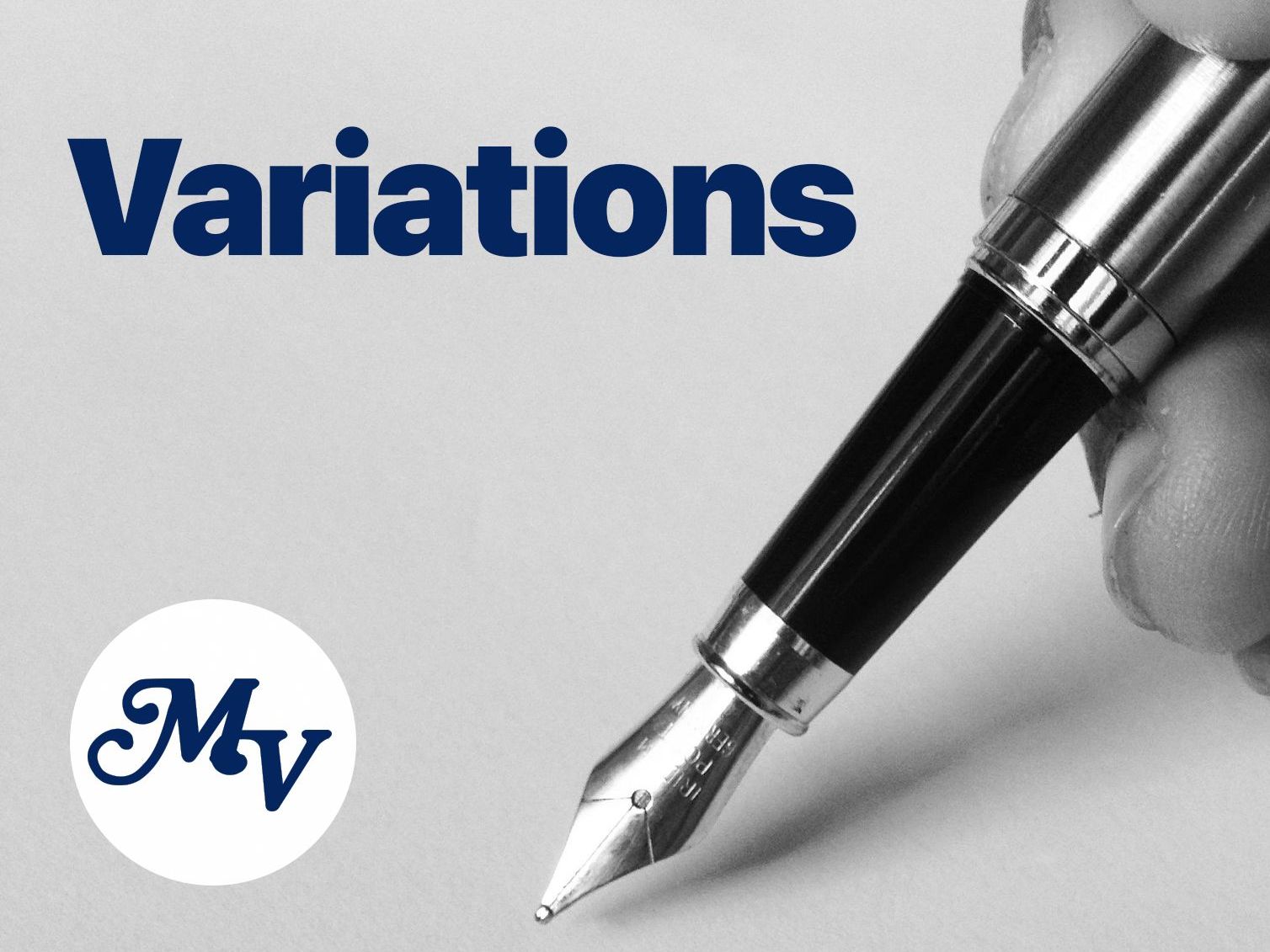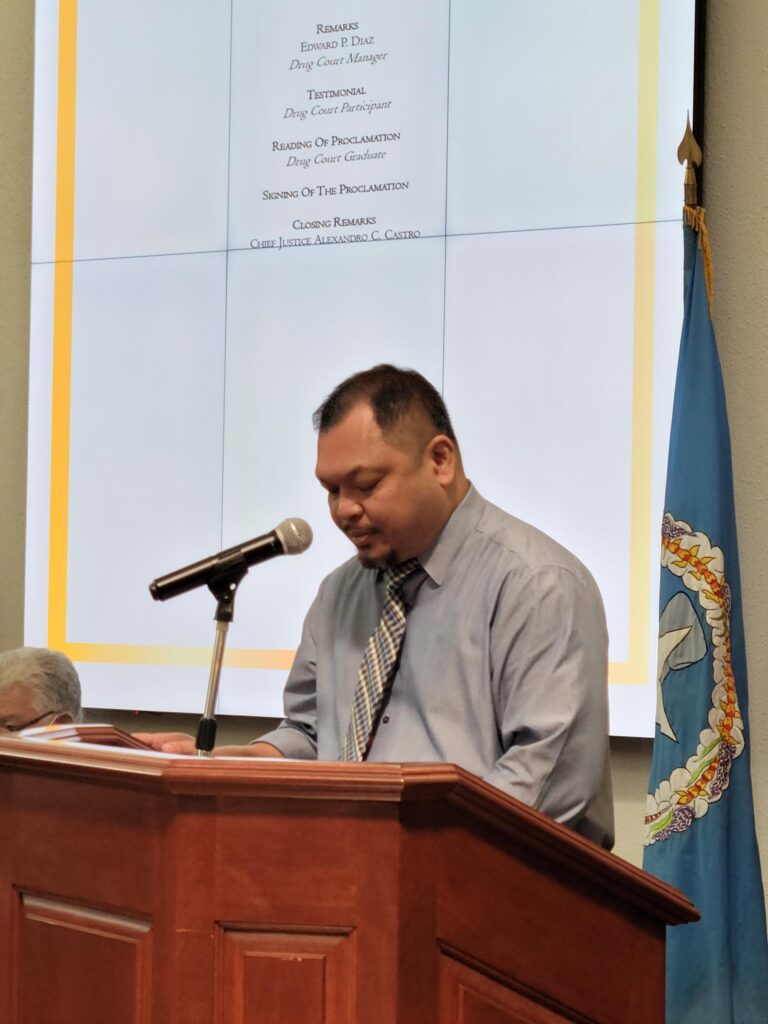“FOR those still struggling with addiction…you really have to want it. If you don’t work it, it won’t work for you,” said Wilson Celeste, 26, a recent CNMI Drug Court program participant.

Drug Court program manager Ed Diaz delivers his remarks during the Drug Court Month proclamation signing ceremony at Guma Hustisia on Wednesday.
In an interview, he said, “The program helped me get a job. I work for the Commonwealth Healthcare Corporation now. I’m back with my family — everything is all good.”
He added, “It’s been a game changer from being addicted to cigarettes, drinking, meth, and then just turning my life around. I don’t smoke anymore, I don’t chew, it’s been a big turnaround.”
Born and raised on Saipan, Celeste was arrested in 2019 on a robbery charge.
According to Celeste, at 14 years old, he was picking cigarettes off the ground.
“Buying cigarettes at 15 years old, consuming alcohol at around 16 to 17 years old — by the time I graduated from high school I had my first child, then I started using methamphetamine.”
For the past seven years, Celeste said, “I was struggling to get it together…. For the last two years I was working on myself when I was accepted to the Drug Court program. Now it’s just smooth sailing. I got my life back, and I’m doing better compared to what my life was seven years ago.”
On Wednesday, the judiciary held a Drug Court Month proclamation signing ceremony at Guma Hustisia in Susupe in conjunction with the Law Day celebration.
Celeste spoke about his struggle with addiction and his journey toward recovery.
For his part, Ed Diaz, Drug Court program manager, said the program is all about recovery.
“Drug Court is a specialty court — it’s a therapeutic court, it’s a treatment court. It’s not adversarial,” he said.
“What we do with our multi-disciplinary team is to make sure we navigate the participants to services and resources in the community and that we help them in their recovery,” Diaz added.
He said the program currently has 28 participants. “But we have some on the waiting list and they are being processed. Maybe we will be having about 40 by the end of the year,” he added.
He said of the 107 who were accepted to the program since its inception in 2015, 11 individuals experienced a relapse.
“But those who have a relapse still have the knowledge and tools that can help with their recovery,” Diaz said. “What is the alternative? Incarceration.”
The CNMI Drug Court Month proclamation states, “Treatment courts facilitate community-wide partnerships, bringing together public safety and public health professionals.” Moreover, “treatment courts demonstrate that when one person rises out of substance use and crime, we all rise.”











